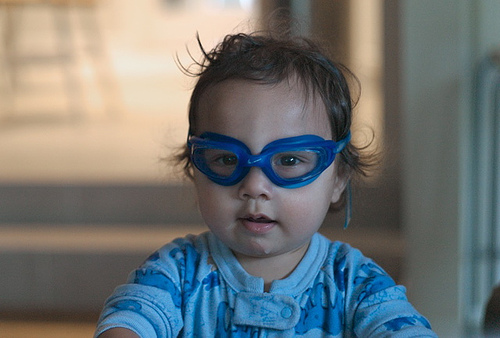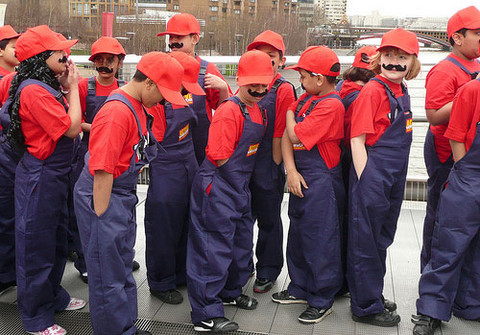
By Sarah J. for everythingchangesbook.com
I remember when I was twelve my grandpa was dying of lung cancer and I couldn’t even speak as I sat in his hospital room. The grown-ups kicked me out before I was able to say good-bye.
When I was diagnosed with Hodgkin’s my kids were four and five. I didn’t want them to feel powerless like I did with my grandpa, but I didn’t know how to help them because having cancer made me feel so powerless.
And then I remembered a time before cancer that I was lying on the couch with a pretty bad cold and they made me soup. What they actually made was cold water, lettuce, carrots, turkey, crackers, and bread in a bowl along with a huge mess in the kitchen, but to them it was soup and their faces beamed with the pride of knowing their soup would help me feel better. I started remembering other similar instances of their efforts to help me like bringing me little teacups of water, washing the mirror on the bathroom door with soap, and spending hours scrubbing the fireplace doors with sponges. I thought that maybe with a little direction, there could be something to this.
I let them help whenever they offered without worrying about the mess they might leave behind. When I was too tired or in pain I would ask them for water, my pill bottles, a snack, or anything else I knew they were capable of. I even let them wash my hair after my lymph node biopsy when I couldn’t lift my arm. These were not just chores, they were lessons in kindness and with each task I could see that I was giving them some power over the situation and that they took pride in every little thing they could do to help.
It’s hard to parent with cancer, but it’s easy to give your kids a little power and in doing so, you may feel a little less powerless yourself.
How old are your kids? Have they been behaving differently since your diagnosis? Have they ever offered to help you out? How did it go?
![]()
![]()


 “Everything Changes is, without doubt, the most forthright, emotionally sophisticated, and plain-old valuable book of its kind I've seen.”
“Everything Changes is, without doubt, the most forthright, emotionally sophisticated, and plain-old valuable book of its kind I've seen.”












